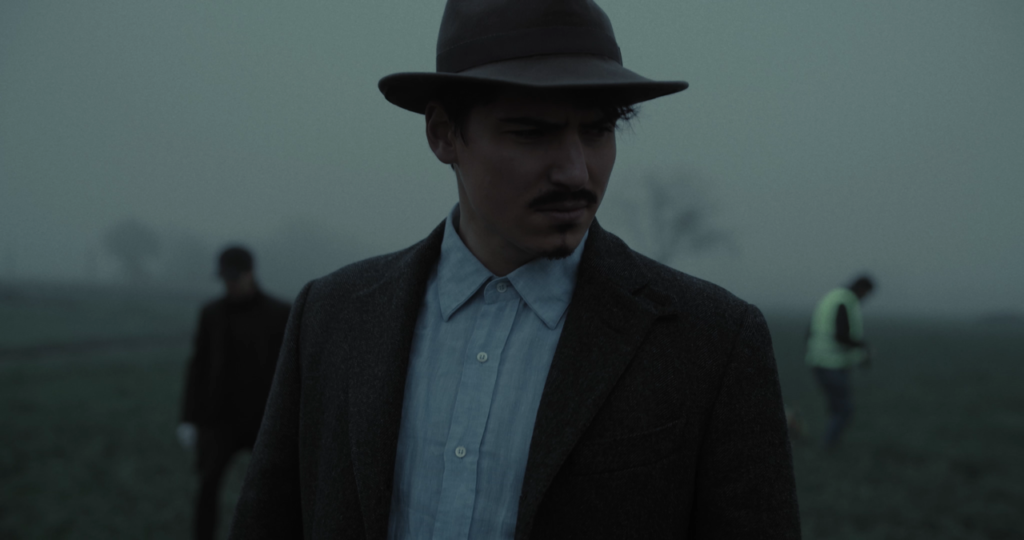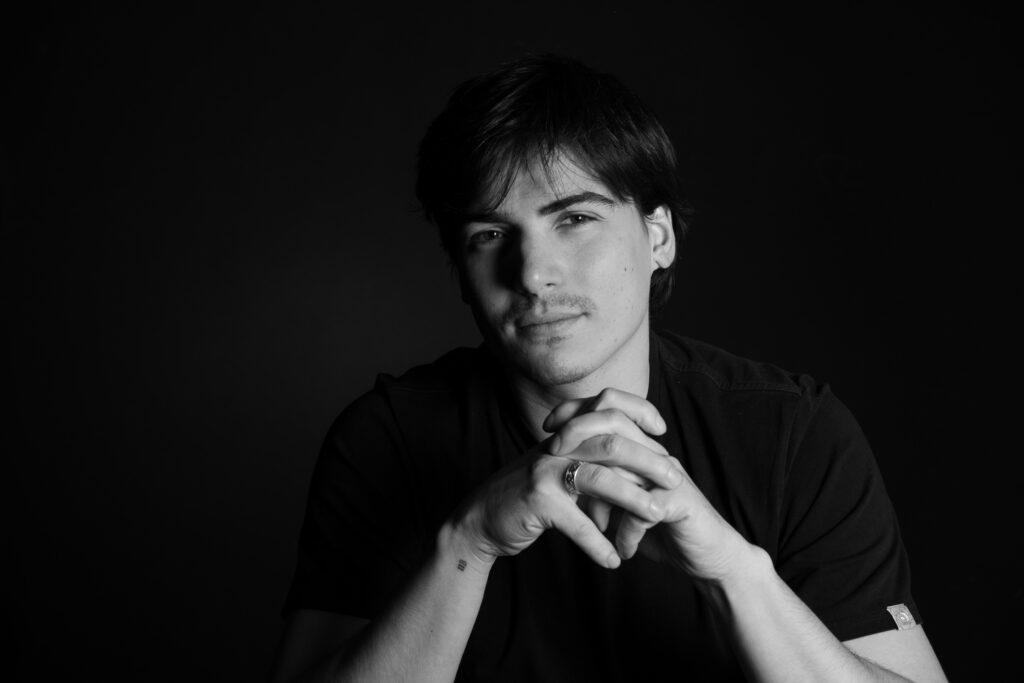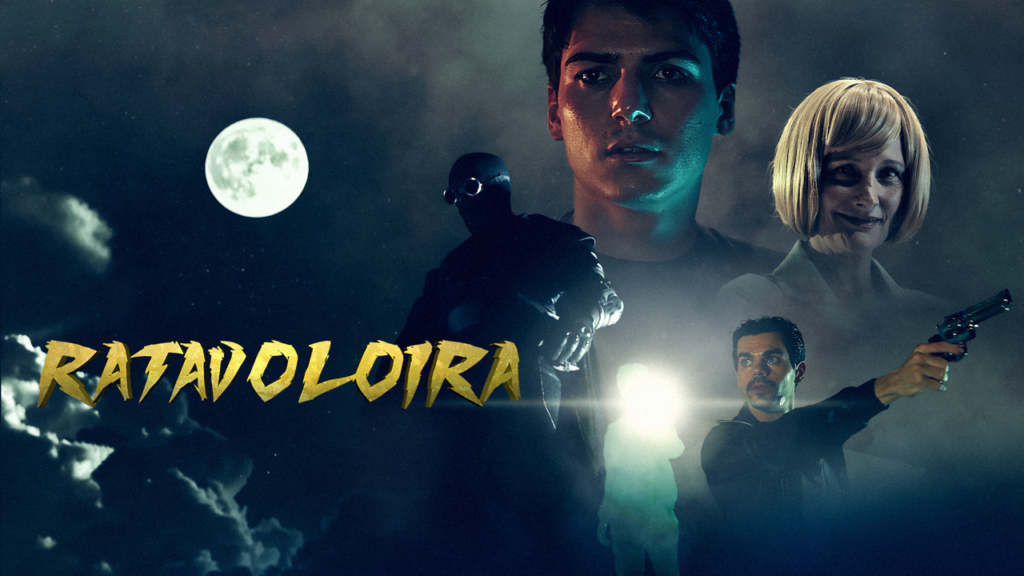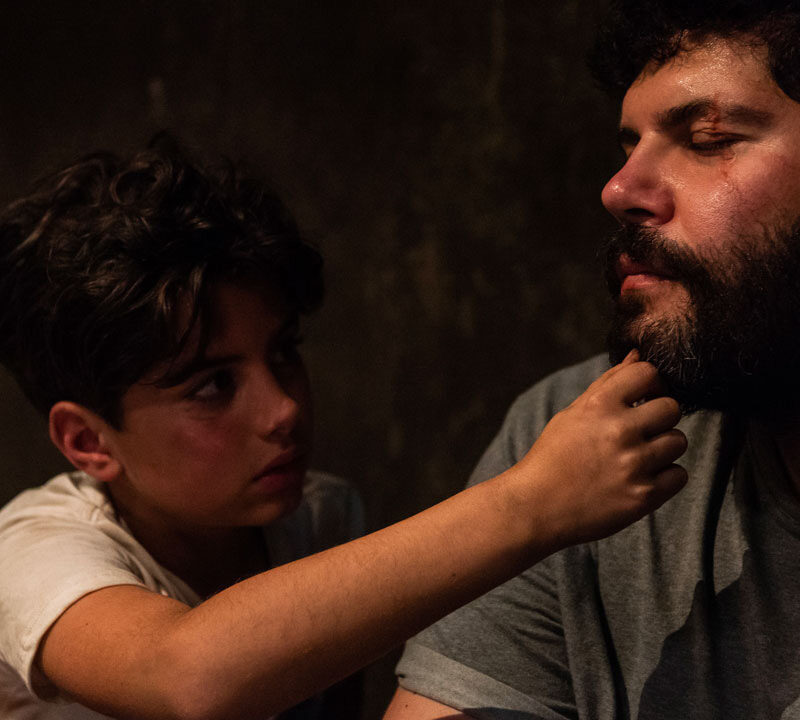intervista a cura di Davies Zambotti
Come hai iniziato a fare cinema? Cosa ti ha stimolato ad intraprendere questa carriera?
Ho sempre avuto la passione per gli aspetti pratici della produzione di un film. Uno dei miei hobby preferiti è sempre stato girare corti con gli amici. Lo stimolo è stato graduale, man mano che imparavo guardavo i film in modo analitico prima che da spettatore, per capire come erano stati realizzati. Ecco forse lo stimolo è nato dal mio costante desiderio di capire come funzionano le cose.
How did you apporach the world of cinema? What inspired you to pursue this career?
I’ve always loved the practical aspects behind film productions. One of my favorite hobbies has always been shooting short films with my friends. The inspiration came gradually; The more I learnt the more I started watching films analytically, more than a spectator, to understand how they were made. Perhaps the biggest spark came from my constant desire to understand how things work.
Sul set hai più peso per te l’improvvisazione o la pianificazione?
Per me è molto importante la pianificazione, ma devo dire che avendo una formazione teatrale (ho studiato alla Scuola del Teatro Stabile di Torino) mi piace anche lavorare con gli attori sul set prima delle riprese, costruire con loro le dinamiche e i movimenti e di conseguenza adattare i movimenti di macchina. Diciamo che ho un approccio ibrido tra quello del pianificatore maniacale e quello del teatrante che ama giocare sul posto.
Il rapporto con lo spazio per me è una cosa importantissima, anche questo retaggio di una formazione di palcoscenico. Presto molta attenzione a come relazionare me, gli attori e la macchina da presa con lo spazio in cui stiamo girando.
Improvisation or careful planning, what’s more important on set?
I really value planning, but having myself a theater education (I attended Scuola del Teatro Stabile in Turin) I also like working with the actors on set before shooting, trying to build dynamics and movements with them and consequently adapt camera motions in the best way. Let’s say I have a hybrid approach inbetween the obsessive planner and the theater actor who enjoys playing freely on site.
The relationship with space is exremely important to me and it is a legacy of my stage training. I pay close attention to how I, the actors and the camera relate to the space we are shooting in.


Come ti comporti con le “regole” del linguaggio cinematografico?
Ci tengo a impararle e a rispettarle perché rappresentano una grammatica, penso che sia fondamentale per un regista imparare le basi di questa “lingua” per poter poi decidere a proprio gusto che cosa farne.Ci tengo a impararle e a rispettarle perché rappresentano una grammatica, penso che sia fondamentale per un regista imparare le basi di questa “lingua” per poter poi decidere a proprio gusto che cosa farne.
Do you usually follow the rules of cinematic language?
I try to abide to the rules, they are like a grammar scheme, but I think it is fundamental for a director to learn the rules specifically in order to break them in their own taste.
Che rapporto hai con la fotografia? E qual è lo scatto che per te rappresenta il cinema?
La passione per la fotografia è iniziata insieme a quella per il teatro, posso dire che le ho sviluppate contemporaneamente, tutt’oggi lavoro anche come fotografo per varie committenze. Lo scatto che rappresenta il cinema?
How’s your relationship with photography? What is the photo that in your opinion most represents cinema?
My passion for photography sparked with theatre, maybe they were born together. Nowadays I do actually work also as a photographer on commission. This is the shoot that most represent cinema for me.


Quanto la fotografia è importante nella tua narrazione?
In generale penso che il mio approccio al cinema parta essenzialmente dalla fotografia, non si tratta solo di questioni estetiche, ma anche di ragionare per immagini. Delle volte per aiutarmi a scrivere improvviso alcune scene e le riprendo per capire che cosa davvero è necessario dire e che cosa è sufficiente mostrare.
Penso che il cinema debba innanzitutto raccontare una storia, in cui il punto di vista è necessario. Le storie che mi piacerebbe di più raccontare sono quelle con una carica fantastica, ai limiti della realtà, e non senza aspetti ambigui. Ecco perché sono incline a un cinema che combini atmosfere insolite e azione e per questo la fotografia gioca un ruolo fondamentale nella drammaturgia del tutto.
Is photography important for your storytelling?
In general, I think my work plan on cinematographical works begins essentially with photography, it’s not just about aesthetics, it’s also about thinking in terms of images. Sometimes, to help myself, I improvise some scenes on paper and I shoot them to understand what is necessary and sufficient to show.
I think cinema must first of all tell a story, in which the point of view is essential. The stories I would like to tell are those with a fantasy taste, bordering on reality, not without ambiguous aspects. That’s why I’m inclined towards a cinema which combines unusual atmospheres and action and to make this possible photography plays a fundamental role in the dramaturgy of the work.
Quali sono i tuoi punti di riferimento e ispirazione?
Elia Kazan, Michelangelo Antonioni, Federico Fellini, Miloš Forman, Martin Scorsese, Denis Villeneuve, Alex Garland, Thomas Vinterberg, Christopher Nolan.
What are your inspirations?
Elia Kazan, Michelangelo Antonioni, Federico Fellini, Miloš Forman, Martin Scorsese, Denis Villeneuve, Alex Garland, Thomas Vinterberg, Christopher Nolan.







